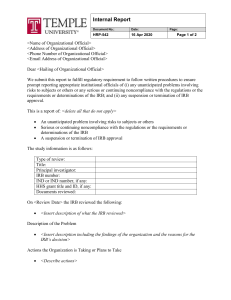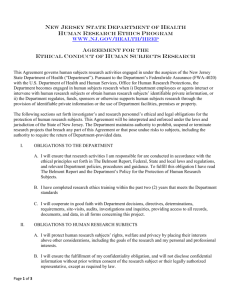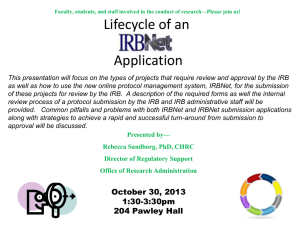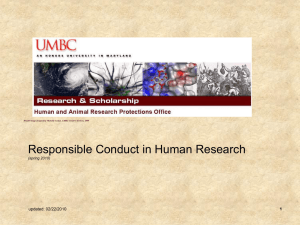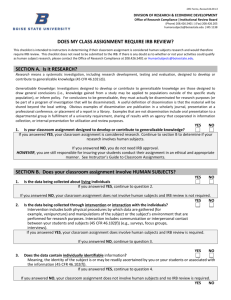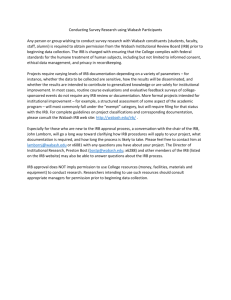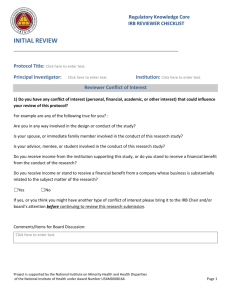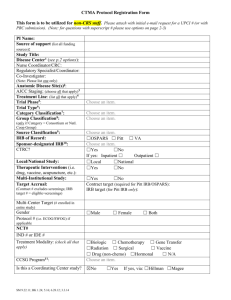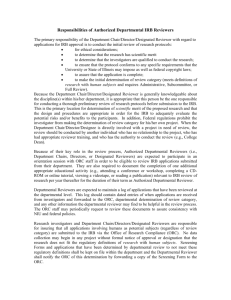Information Sheet for Student Projects/Classroom Activities
advertisement
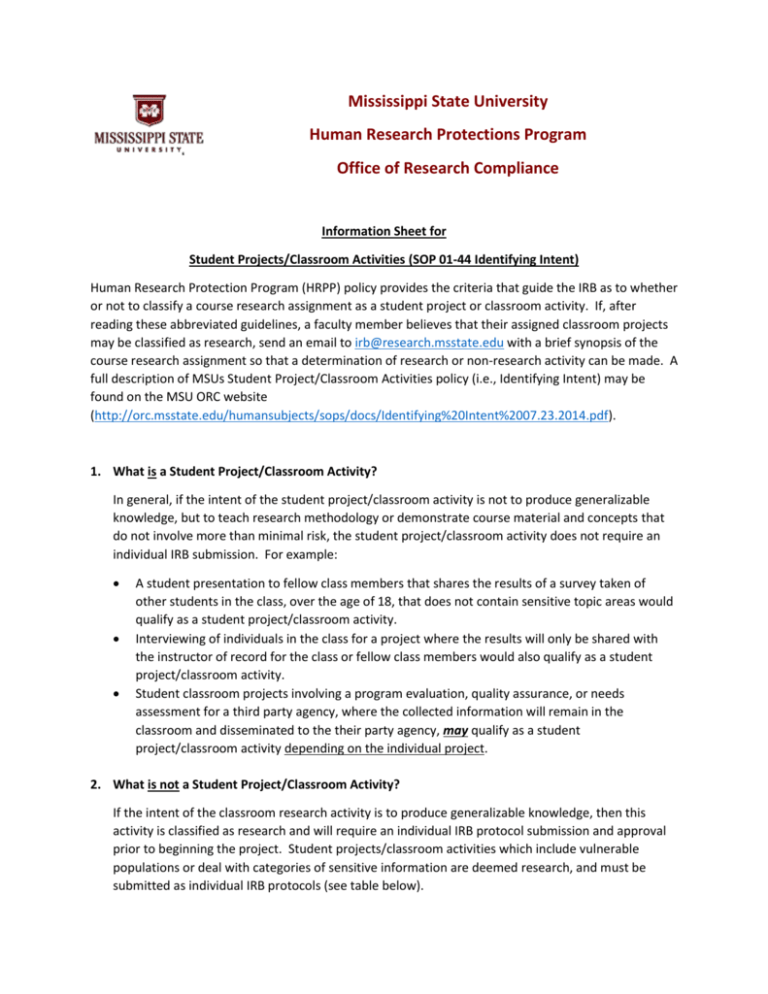
Mississippi State University Human Research Protections Program Office of Research Compliance Information Sheet for Student Projects/Classroom Activities (SOP 01-44 Identifying Intent) Human Research Protection Program (HRPP) policy provides the criteria that guide the IRB as to whether or not to classify a course research assignment as a student project or classroom activity. If, after reading these abbreviated guidelines, a faculty member believes that their assigned classroom projects may be classified as research, send an email to irb@research.msstate.edu with a brief synopsis of the course research assignment so that a determination of research or non-research activity can be made. A full description of MSUs Student Project/Classroom Activities policy (i.e., Identifying Intent) may be found on the MSU ORC website (http://orc.msstate.edu/humansubjects/sops/docs/Identifying%20Intent%2007.23.2014.pdf). 1. What is a Student Project/Classroom Activity? In general, if the intent of the student project/classroom activity is not to produce generalizable knowledge, but to teach research methodology or demonstrate course material and concepts that do not involve more than minimal risk, the student project/classroom activity does not require an individual IRB submission. For example: A student presentation to fellow class members that shares the results of a survey taken of other students in the class, over the age of 18, that does not contain sensitive topic areas would qualify as a student project/classroom activity. Interviewing of individuals in the class for a project where the results will only be shared with the instructor of record for the class or fellow class members would also qualify as a student project/classroom activity. Student classroom projects involving a program evaluation, quality assurance, or needs assessment for a third party agency, where the collected information will remain in the classroom and disseminated to the their party agency, may qualify as a student project/classroom activity depending on the individual project. 2. What is not a Student Project/Classroom Activity? If the intent of the classroom research activity is to produce generalizable knowledge, then this activity is classified as research and will require an individual IRB protocol submission and approval prior to beginning the project. Student projects/classroom activities which include vulnerable populations or deal with categories of sensitive information are deemed research, and must be submitted as individual IRB protocols (see table below). Categories of Sensitive Information (examples of information—this is not all inclusive) Vulnerable Populations Information relating to sexual attitudes, preferences, or practices Minors (under 18 years of age) Information relating to the use of alcohol, drugs, or other addictive products Fetuses or products of labor and delivery Information pertaining to illegal conduct Neonates Information that, if released, could reasonably damage an individual’s financial standing, employability, or reputation within the community Pregnant women (in studies that may influence maternal health) Information that would normally be recorded in a patient’s medical record and the disclosure of which could reasonably lead to social stigmatization or discrimination Prisoners Information pertaining to an individual’s psychological well-being or mental health Individuals with diminished capacity (cognitively impaired individuals) Genetic information Ethical Responsibilities Pertaining to Student Projects/Classroom Activities It is the responsibility of the faculty member to: a. Remain current in their human subjects training (through CITI or other method). b. Ensure student projects/classroom activities are conducted to the ethical standards of human subject research, as well as to the ethical standards of their individual discipline. c. Ensure that students understand and implement these ethical standards in carrying out their projects. d. Teach students about the ethical conduct of human subjects research, including basic human subject rights and the role of the IRB e. Suggest students complete human subjects training if the student project/classroom activity does not require individual IRB approval before collecting data. f. Provide guidance to students collecting information in order to minimize any unintentional harm to other students/individuals. g. Review students’ plans for classroom or group projects, and when necessary, suggest improvements in design and protections for confidentiality. h. Suggest that a written explanation of how the data will be used in the course, along with the name and contact number of the instructor, be included when written questionnaires are to be used. i. Instruct students about privacy and security vulnerabilities associated with networked computers and the internet.



